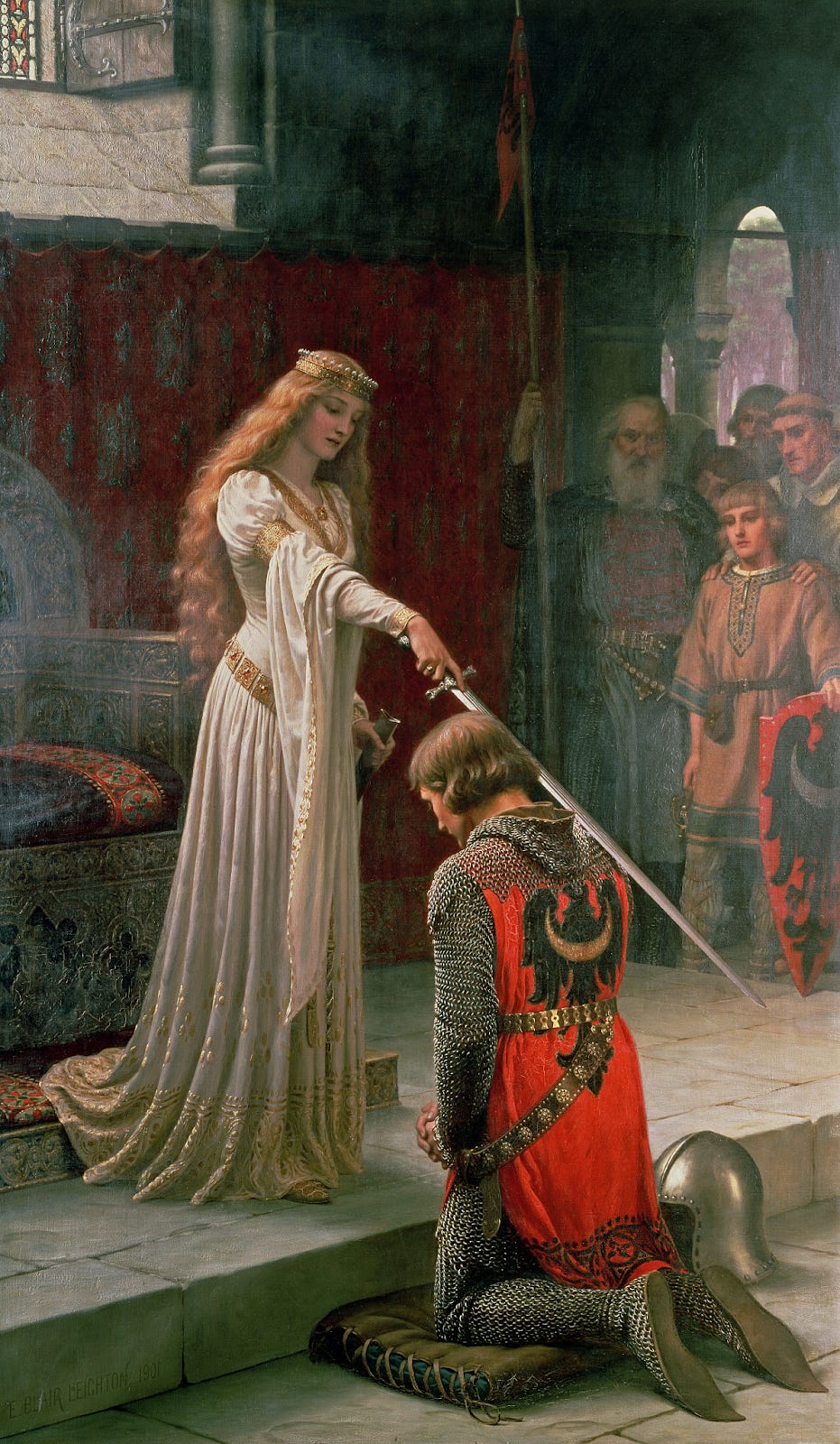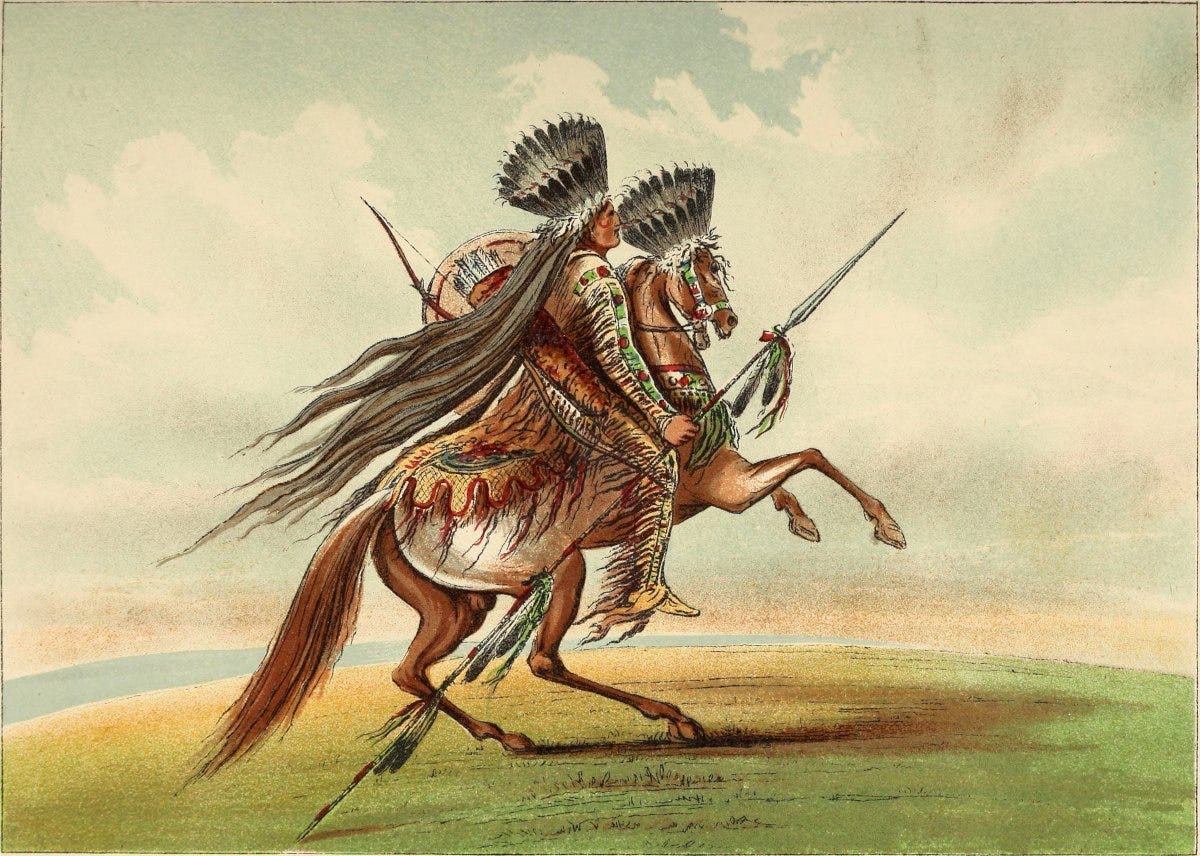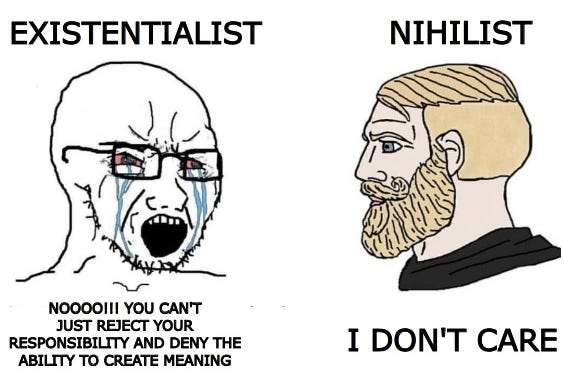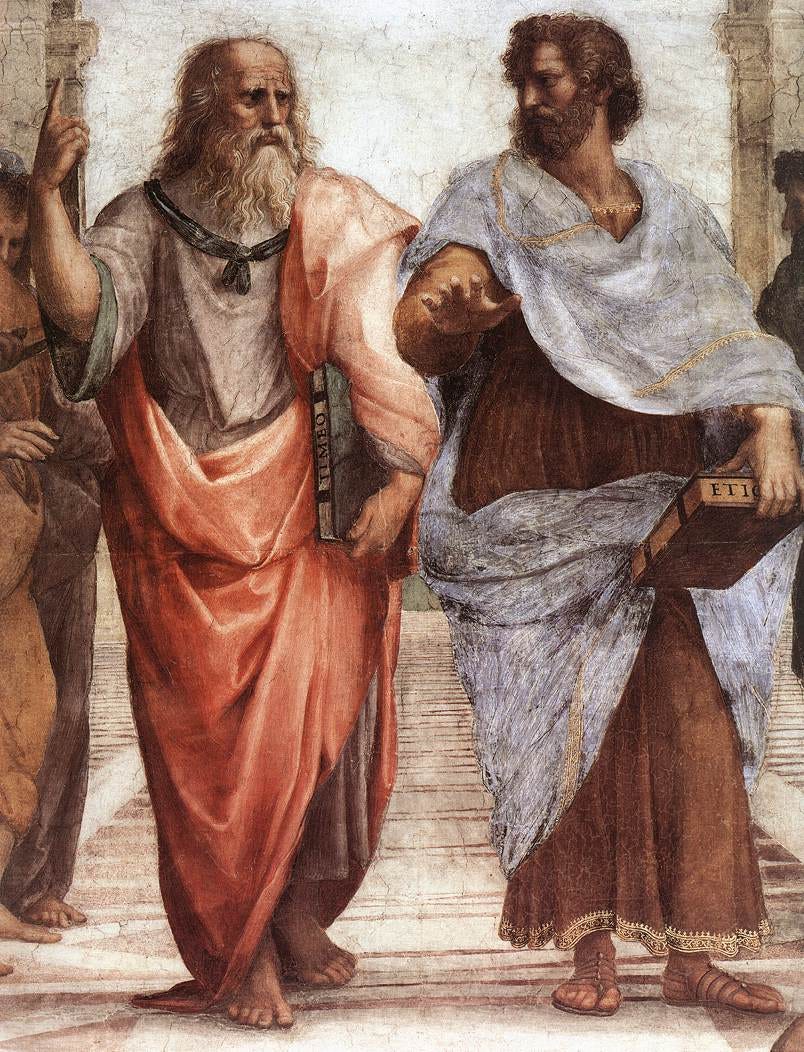The Warrior’s Object of Devotion | Purpose in Life (Part 1)
A dive into the philosophical concept of devotion and purpose from a warrior's perspective
The Warrior’s Object of Devotion
So far in this series of short essays we have considered the current state of men along with case studies of four different warriors: knights, samurai, Ilmoran and Native American warriors.
While I’d love to cover more examples (like Roman, Viking, or Māori warriors), it’s time to shift focus to the defining adjective in this series: devoted.
Warriors are each devoted to someone or something:
Knights were devoted to the vassal of their fief or the king of their kingdom
Samurai were devoted to their daimyo or lord that hired them
Ilmoran report to the elders but are ultimately devoted to their clan
Native American warriors reported to their chief but were ultimately devoted to their tribe

This concept of devotion is not just relevant for traditional warriors -- it can be applied to us today. The renowned Bob Dylan sings that no matter who you are “you’re gonna have to serve somebody.” Author David Foster Wallace observes in his commencement speech titled “This Is Water” that “everybody worships. The only choice we get is what to worship.” And pastor Rick Warren believes that “everybody has a worldview. Everybody is betting their life on something.”
Each of these ideas imply that we are motivated to dedicate our life to something with a kind of motivating force that drives us to action in the same way that those warriors are motivated to serve their lord and their people. I would argue that this culminates in the conception of an ultimate purpose -- significance and meaning for the lives of individual human beings and humanity at large.

This begs three important questions for us:
Does life have a purpose?
Why should we live a purposeful life?
If we do believe that life has an ultimate purpose, what is that purpose?
I’ll offer contemplations on these questions over the next few posts.
Does life have a purpose?
I will not pretend to be a philosopher that could offer a sufficient answer to this age-old question that has been asked for the whole course of human history. I will simply lay out some principles and ponderings that can generally guide us towards drawing a conclusion.
I propose that there are three broad philosophical worldviews when it comes to the purpose of life:
Nihilism
Existentialism
Teleology
Nihilism
Nihilism is the concept that life has no inherent or objective meaning, and that attempts to create one are ultimately futile. It often results in despair, detachment, or rejection of traditional values. Although not a nihilist himself, Albert Camus contemplated this worldview, writing that, “If we believe in nothing, if nothing has any meaning and if we can affirm no values whatsoever… nothing has any importance.” The band KANSAS puts it like this: “nothing lasts forever… all we are is dust in the wind.” Even Biblical writers including the author of Ecclesiastes wrestled with this idea, lamenting at the beginning of the book: “All is vanity and a striving after wind.” This worldview is naturally pessimistic, positing that we have somehow manifested in this world with bodies and minds with no inherent aim or direction to guide us, and that even generating an artificial purpose is pointless.

Existentialism
Existentialism is the concept that life has no inherent meaning but humans should create their own. One of the leading existentialists, Jean-Paul Sartre, explains its first principle: “there is no human nature… man is nothing other than what he makes of himself.” They believe that “existence precedes essence” implying that human beings were created by some unknown, unintelligent means with no predetermined significance at first. Therefore, humans have the freedom and responsibility to use their minds to define their own significance based on intuition, logic, and emotions.

Teleology
Aristotle developed the theory of “teleology,” a broad term based on the Greek word “telos” that reflects the belief that everything (people and things) has a special purpose, end, goal or function. In human philosophy it implies that there is an inherent design by which human beings were meant to live. The source of this inherent meaning and purpose could be believed to originate from a general, non-specific higher order or power, or it could be part of a higher being’s plan as found in religion. This worldview holds that “essence precedes existence”; there were predefined characteristics and operating principles for life before we were born into this world.

Which one is right?
My posture with this platform is for you - the reader - to draw conclusions on your own. My role is to guide investigation into important ideas, share my framework for thinking about those ideas, and let you decide what you believe for yourself. In that spirit, let me simply reframe these worldviews using warrior language:
Nihilism: there are no real lords (or purposes or things or beings) to serve, therefore we are all vagabonds and rogues aimlessly wandering without a concern for order or meaning in the world
Existentialism: we seek order and service to lords like mercenaries or freelancers with the liberty to evaluate and choose which one to serve based on alignment with our principles and values, and other warriors are welcome to do the same for themselves
Teleology: we are subject to serve the one true lord for whom we are destined to submit our lives to above all others regardless of our feelings or competing offers

In the following posts, I’ll offer some ideas to help the remaining two questions: “Why should we live a purposeful life?” and “If we do believe that life has an ultimate purpose, what is that purpose?” I’ll make a few observations about the implications of living a life with or without purpose. And we’ll explore the different kinds of life purposes and the implications of following each of those. In the meantime, consider these questions:
Who or what do you serve, worship, or bet your life on?
Do you identify with nihilism, existentialism, or teleology?
Do you believe life has a purpose? If so, what is it? Is it the same or different for all people?
How have you determined your personal worldview regarding purpose in life? Have you come to that conclusion based on logic, experience, science, faith, or some combination of each of those?
Has your worldview regarding the purpose of life changed over time?
(Refer to the final footnote for the full list of sources for this article)1
[1] Bob Dylan. Gotta Serve Somebody. Columbia Records, 1979. BobDylan.com,
https://www.bobdylan.com/songs/gotta-serve-somebody
[2] Wallace, David Foster. “Kenyon College Commencement Speech.” Kenyon College Bulletin, 21 July 2008, http://bulletin-archive.kenyon.edu/x4280.html
[3] “A life of purpose | Rick Warren” YouTube, uploaded by TED, April 15 2008,
[4] Blackburn, Simon. “Nihilism.” Internet Encyclopedia of Philosophy, https://iep.utm.edu/nihilism/
[5] Camus, Albert. The Myth of Sisyphus. Quoted in Goodreads,
https://www.goodreads.com/quotes/620723-if-we-believe-in-nothing-if-nothing-has-any-meaning
[6] Kansas. Dust in the Wind. Kirshner Records, 1977. YouTube, uploaded by KansasVEVO, 17 Aug. 2009,
[7] Crowell, Steven. “Existentialism.” The Stanford Encyclopedia of Philosophy, edited by Edward N. Zalta, Spring 2020, https://plato.stanford.edu/entries/existentialism
[8] Akins, Elizabeth. “Jean-Paul Sartre and the Essence of Self.” PhilArchive, 2020, https://philarchive.org/archive/AKIJSE
[9] “Teleology.” Encyclopaedia Britannica, https://www.britannica.com/topic/teleology

